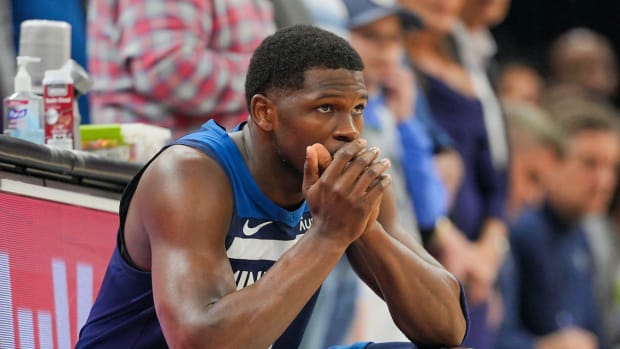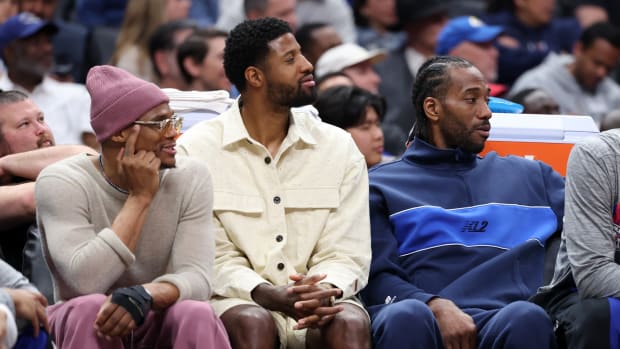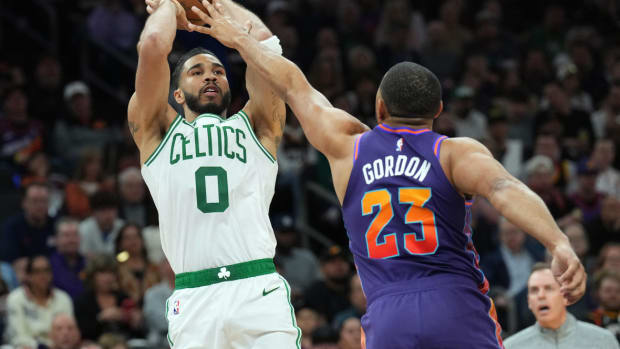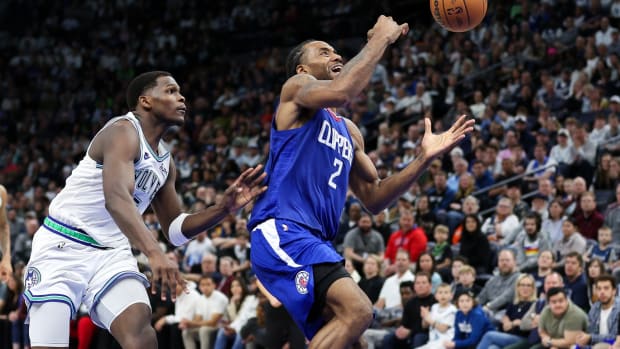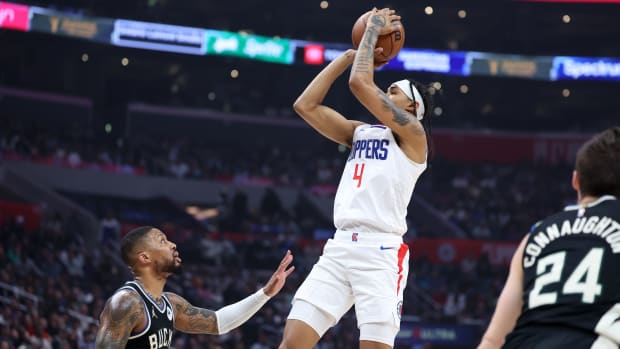Paul George Defends Jonathan Isaac's Anthem Decision: 'Nobody's wrong'
Orlando Magic forward Jonathan Isaac made headlines on Friday when he became the first player in the NBA to stand for the playing of the national anthem, rather than kneel. Unlike the rest of his teammates and coaches, Isaac did not wear a Black Lives Matter shirt, either.
The 22-year-old explained his decision after the game, telling ESPN that while he believes Black lives matter, he didn't feel like kneeling was "the answer" for him:
"A lot went into my decision and part of it is my thought that kneeling while wearing a Black Lives Matter t-shirt don't go in hand with supporting Black lives. And so I felt like, just me personally and what it is that I believe in, standing on a stance that I do believe Black lives matter, but I just felt like it was a decision that I had to make and I didn't feel like putting that shirt on went hand in hand with supporting Black lives."
Following the LA Clippers' 126-103 victory over the New Orleans Pelicans on Saturday night, star forward Paul George defended Isaac's decision during a post-game interview:
"I applaud Jonathan Isaac for his stance and his beliefs. He's not wrong. Nobody's wrong. What's so great about it is everyone has a voice in this situation. It's just beautiful, we come together, and we're trying to do the right things to make this world better."
Part of the conversation involved in restarting the NBA season was allowing players, coaches and team staff to demonstrate and speak out on social issues so that the sport would not distract from what is currently happening in the United States.
The league has made significant changes to give teams a larger platform, including painting "Black Lives Matter" on each of the courts used in the restart and allowing players to wear specific social justice statements on the back of their uniforms.
Ultimately, though, it comes down to each person to decide if and how they want to take a stand.
